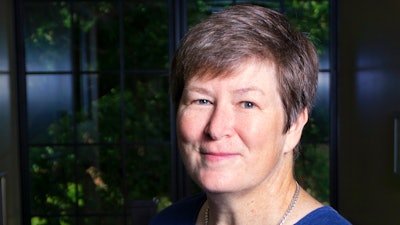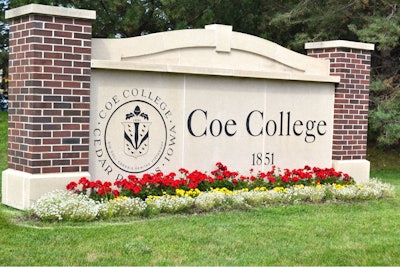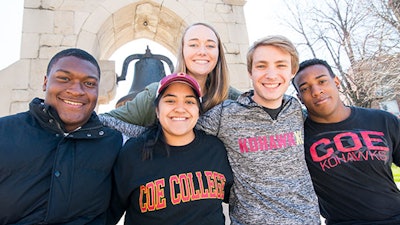Dr. Paula O’Loughlin, provost of Coe College, discusses factors leading to the Cedar Rapids, Iowa-based institution receiving the highest overall score in the preliminary rounds of Diverse Organizational Impact and Transformation (DOIT) certification.
The time for transformative diversity leadership and education is an imminent matter. Many say it’s overdue. Others say it’s a current paradigm. Whether then, now or later, the substance of “transformative” diversity leadership has remained in the eye of one’s circumstances. Still, some institutions dare to define transformation in ways that authenticate and regulate how they function – intentionally, traditionally and daily.
 Dr. Paula O'Loughlin
Dr. Paula O'Loughlin
Coe College scored the highest average overall among institutions that participated in the preliminary rounds. Coe and four other institutions (named on a future date) will receive interviews.
Coop Di Leu conducted the first interview with Dr. Paula O’Loughlin, provost, dean of the faculty, interim dean of students and Title IX coordinator at Coe College in Cedar Rapids, Iowa. Two questions are specific to Coe College; other questions pertain to the esteem expected from the national certification.
Following is a Q&A between Ken Coopwood (KC), CEO of Coop Di Leu, and O’Loughlin (PO).
KC: What thoughts about the future of diversity leadership and education came to mind as you responded to the DOIT certification surveys?
PO: Overall, it was just a great opportunity to reflect on where we are today and where we still need to go. I felt that we were actually doing a lot of these things, and it was pretty cool [to feel on track with needed change]. It also gave me the 
As provost, I can see how the pieces connect to each other. I understand that you don’t have to be rich to make a change. We must use the resources we have.
KC: How do you believe academic leaders should engage in mission-significant diversity initiatives at Coe College?
PO: We are responsible for preparing students for lives of meaning and purpose. That means ALL our students. As an academic leader, it means providing people in front of the class and staff that look like our student body. It also means changing the curricula, changing the co-curricula and opportunities as well. You can’t just change the curriculum, and you can’t just change the people.
You also must think about what the student [and the staff and faculty are] experiencing. That’s what should really drive [transformative diversity leadership]. For example, BIPOC faculty and staff experiences must be on par with what other staff and faculty experience.
Academic leaders have been kind of shut out of this type of conversation. We tend to let the president and chief diversity officer take the lead. Still, academic leaders are central and core-functioning at the college. If we’re not involved, then we make a statement through our lack of engagement.
KC: Do you find that the Pillars represent a whole picture of the core functionality of an institution?

Another thought is how schools from different backgrounds can address [the IPT series] given their different levels of resources and functionality. [The IPT surveys] are good, but I’d want to add other dimensions to the Campus Climate pillar.
KC: In which Pillar would you most like to see Coe College be an example to the country, and why?
PO: Campus Climate because that one makes the most significant difference for the young people. Feeling a sense of belonging, feeling like this is your home and there is space for everybody is a critical thing.
KC: If you were awarded the national certification, what would it mean to Coe College?
PO: It would be an affirmation of the work we’ve done and an inspiration for how much more we need to do. One exciting thing is showing people when they are outstanding at something because they are more likely to do it. People are watching and listening, and you are making a difference [at Coe College], so don’t say we can’t do this, or no one will believe us. Instead, we should say, “Yes, we can. Yes, I can and I must.”
This article originally appeared in the February 3, 2022 edition of Diverse. Read it here.















